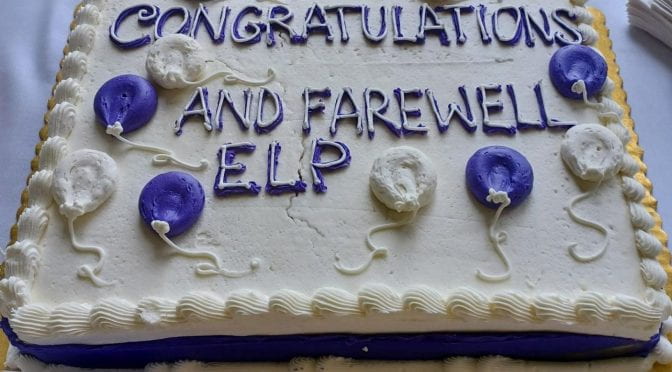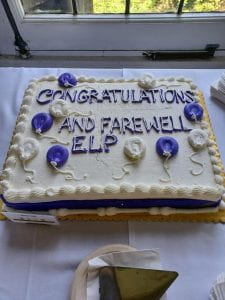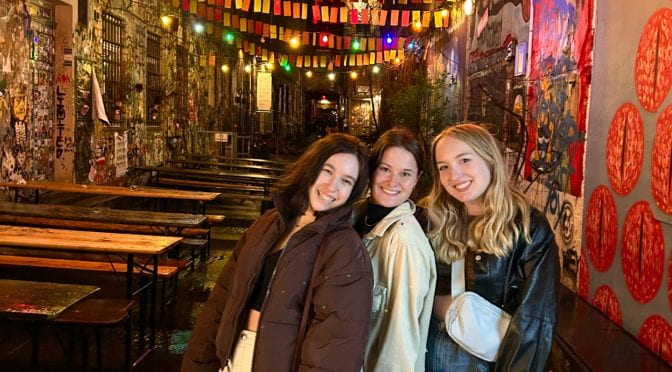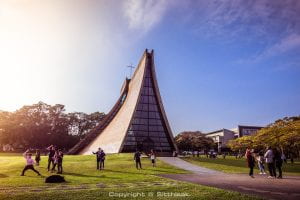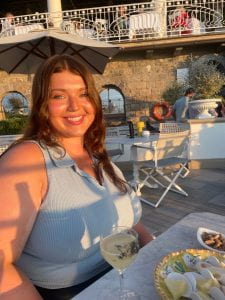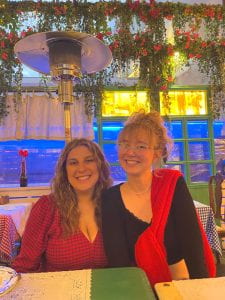With the Gilman International Scholarship application deadline approaching (March 7, 2024), I wanted to share some application tips that I feel helped me receive a Gilman award. The Gilman scholarship was incredibly meaningful for me both during and after my study abroad in Berlin, Germany. I received a $5000 scholarship towards my study abroad semester. I used this on food, housing, and even towards my own personal travel while I was in Europe! Not only did the Gilman scholarship make studying abroad much more affordable, but I also now have alumni benefits. I am a part of a large alumni network, receive access to a variety of events and trainings, and have Non-competitive eligibility for federal jobs for three years. Gilman is not only a financial scholarship, but it also provides great benefits that last a lifetime!

1. Ask Chatham staff and faculty for assistance
Before revising your essay drafts, I strongly recommend reaching out to Karin Chipman, the study abroad advisor at Chatham. She really helped me revise my essays and improve them before I submitted my application. She knows what the Gilman reviewers are looking for, and can help you fit those things into your writing. Additionally, I recommend reaching out to your advisor or favorite professor to ask if they could provide feedback on your essays. The more eyes that review your writing, the better it will be.
2. Be specific about why you chose your study abroad country and program
The Gilman scholarship wants to award students who have put lots thought into their study abroad plan. You will do best if you have specific reasons for why you chose the school and country/city that you did. This is where you should go into specifics, and don’t just say that you find Japan pretty or that your program was the one recommended for you. For example, I talked about how I chose Germany because I have been studying German for 6 years and wanted to be able to advance my German conversational skills. I chose Berlin because I have always had an interest in the Berlin Wall and German reunification, and Berlin is a great city for cold war history. I recommend looking up your school’s course offerings and using that in your essay. I talked about specific courses that caught my interest and would teach me knowledge needed for my future career. The more specific, the better!
3. Describe in detail how studying abroad will impact you as a person
It is important to relate studying abroad to how it will impact you career and skills wise, academically, and personally. Think of what motivated you to study abroad, and how you think it will impact you in different aspects of your life. Again, it is best to be specific with these. I wrote about how I want to have a career in international relations, and how studying abroad will give me important inter-cultural communication skills that I will need for future jobs.
4. Don’t submit your first draft
It is important to give yourself ample time to write and edit your application essays. Your essays are where you can really explain why you deserve this scholarship. Because of that, it is important that you make sure your essays are the best they can be before you submit them.
5. Let yourself shine through your application
Lastly, my final advice is just to let your application reflect who you are as a person. The reviewers want to learn about you and why you want to study abroad. This is your chance to explain all of your excitement, motivations, and even concerns about studying abroad. Talk about your career and education aspirations, and why you have those. Tell them why you are so focused on studying abroad in your country and program. Let the reviewers get to know you!
My time in Germany was amazing, and I miss it everyday. Berlin was such a great city for the arts and history. I attended Freie Universitat, in their European Studies program. I took 12 hours of German instruction per week, and my German language skills really improved over the course of the semester! I also learned lots about the Berlin Wall, the Cold War, and the reunification of Germany. My favorite place I visited in Berlin was Teufelsberg, an abandoned U.S military radio station used during the Cold War. You have to hike to reach it, and the views once you climb the tower are beautiful. Today, the station has been turned into an art installation, with rotating murals. The graffiti culture is one of the things I loved about Berlin, in addition to their many flea markets and Doner kebabs. Besides Germany, I also visited Switzerland, Italy, France, England, Belgium, and Amsterdam. Getting to travel around Europe with the new friends I made is an experience that I will always remember. My study abroad semester gave me both memories and intercultural and problem solving skills that I will never forget.


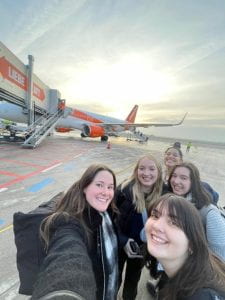

To learn more about Gilman and to apply, visit here. If you have any questions about applying, reach out to the OIA office at internationalaffairs@chatham.edu, Karin, or myself at alyssa.bruce@chatham.edu. Good luck!


